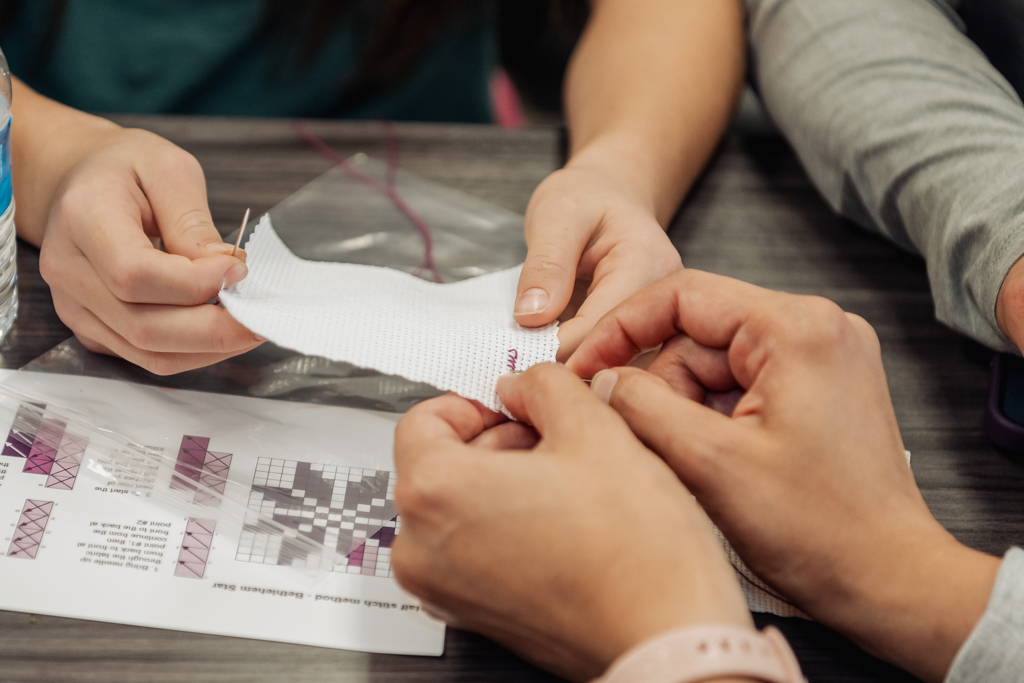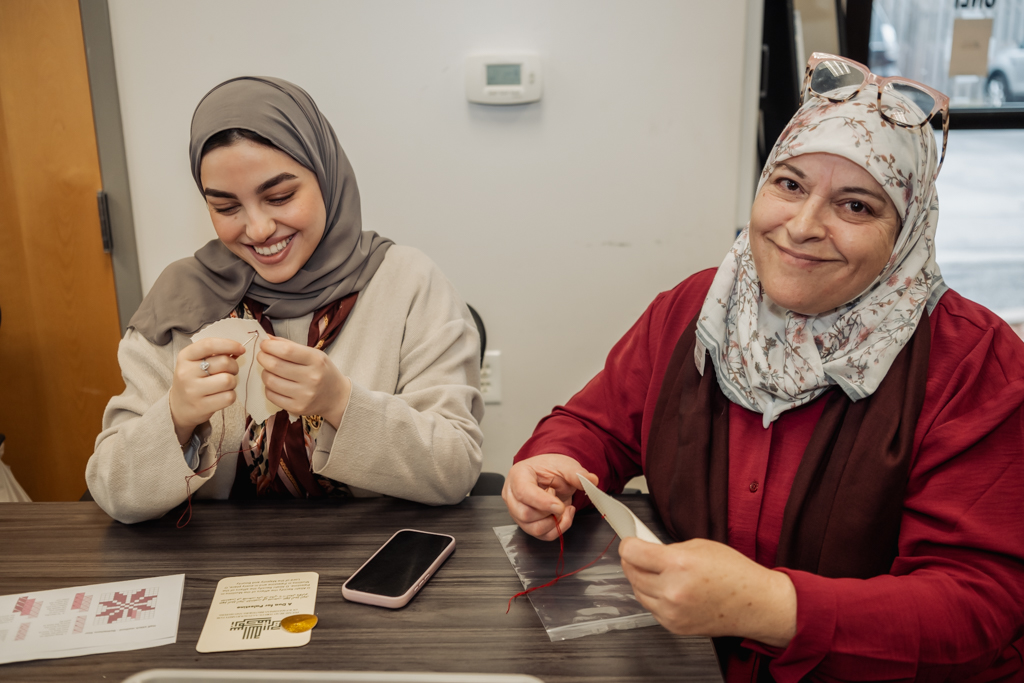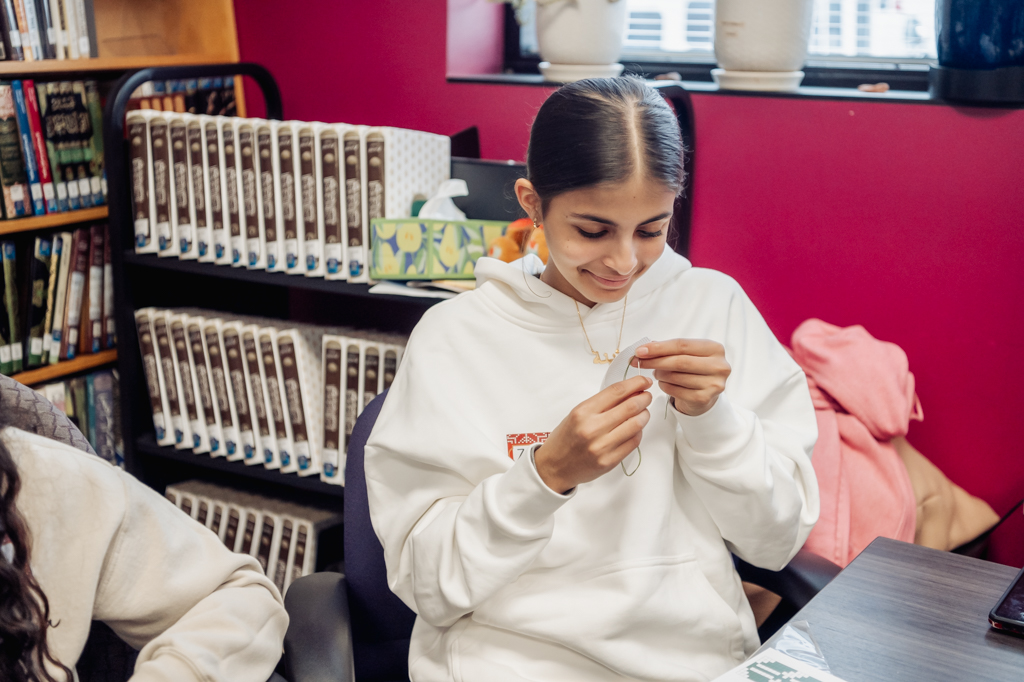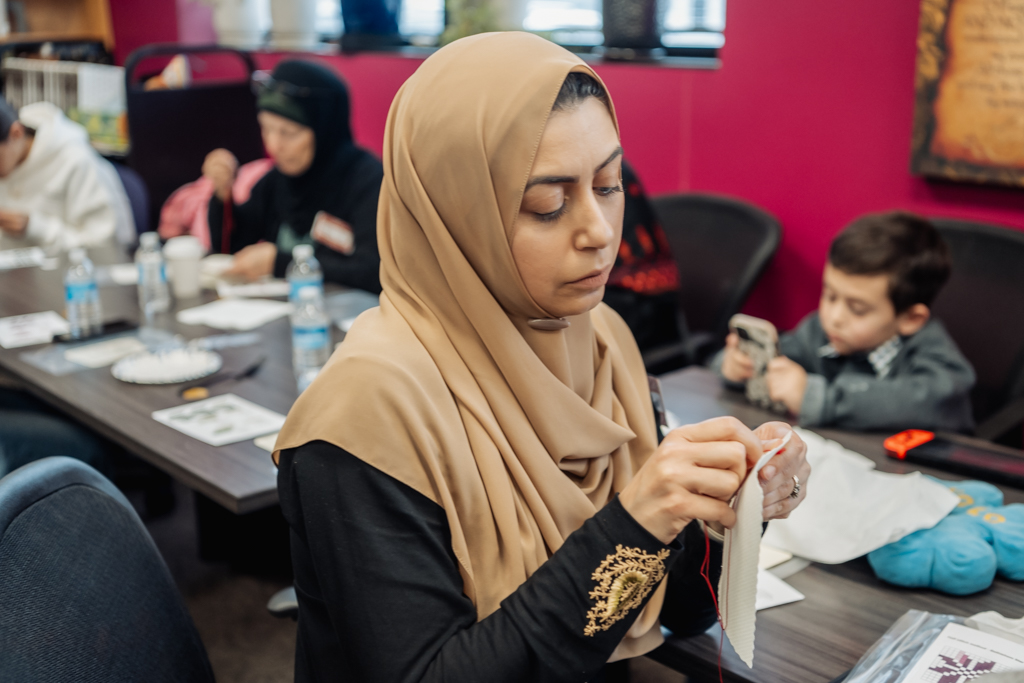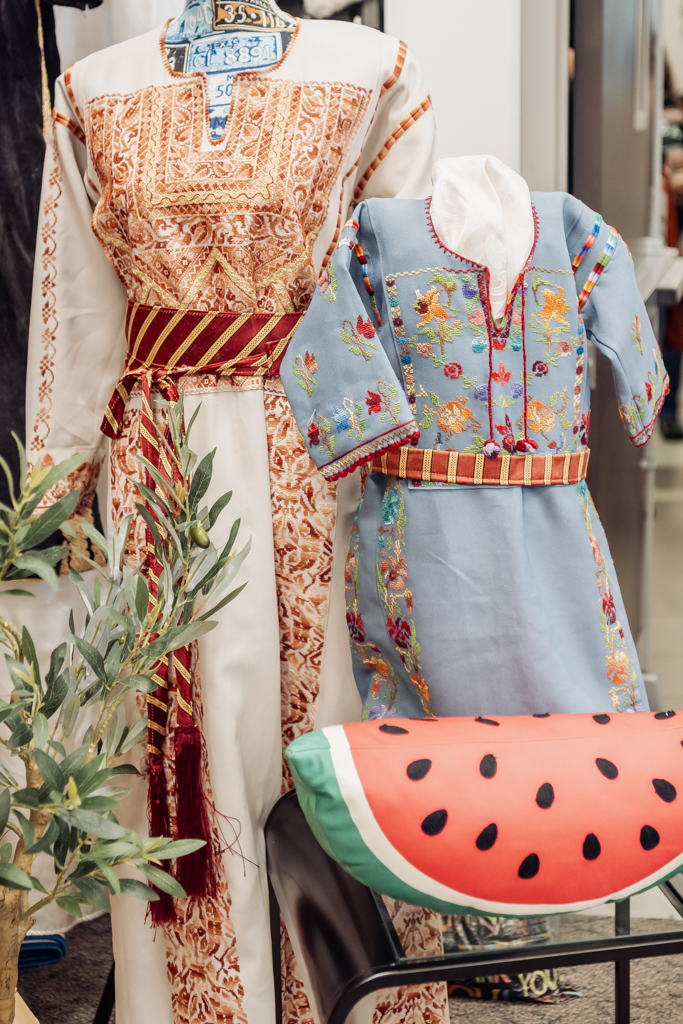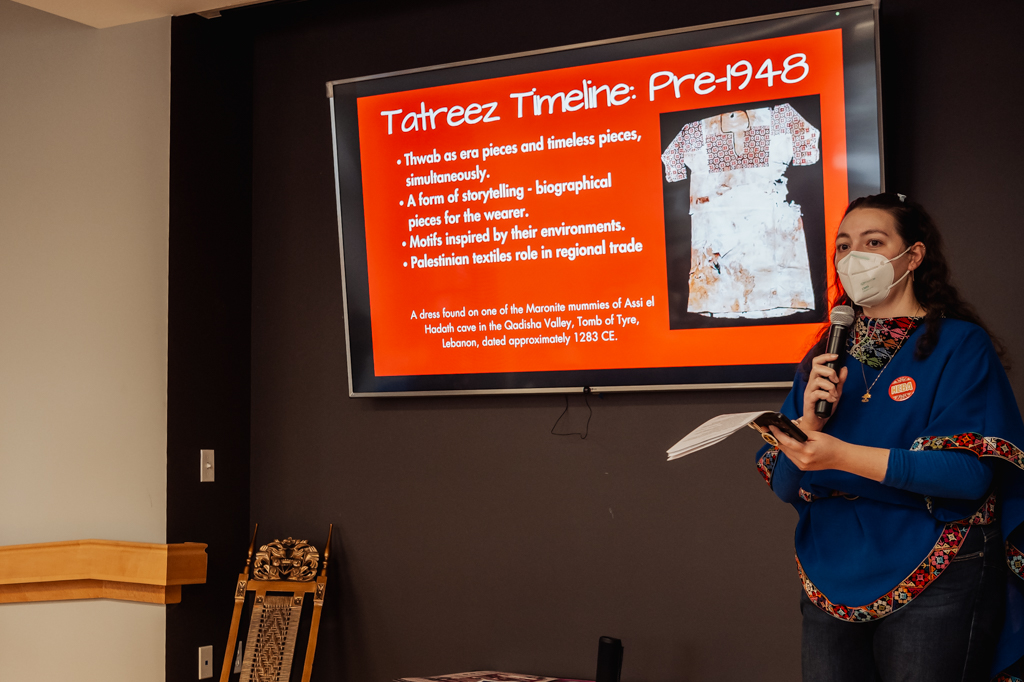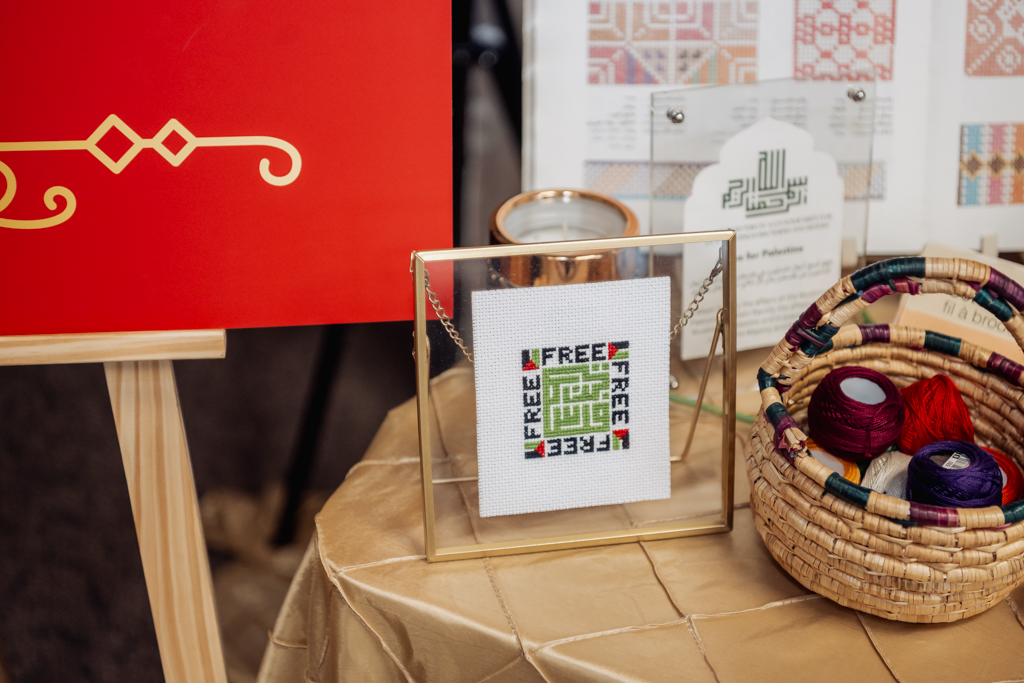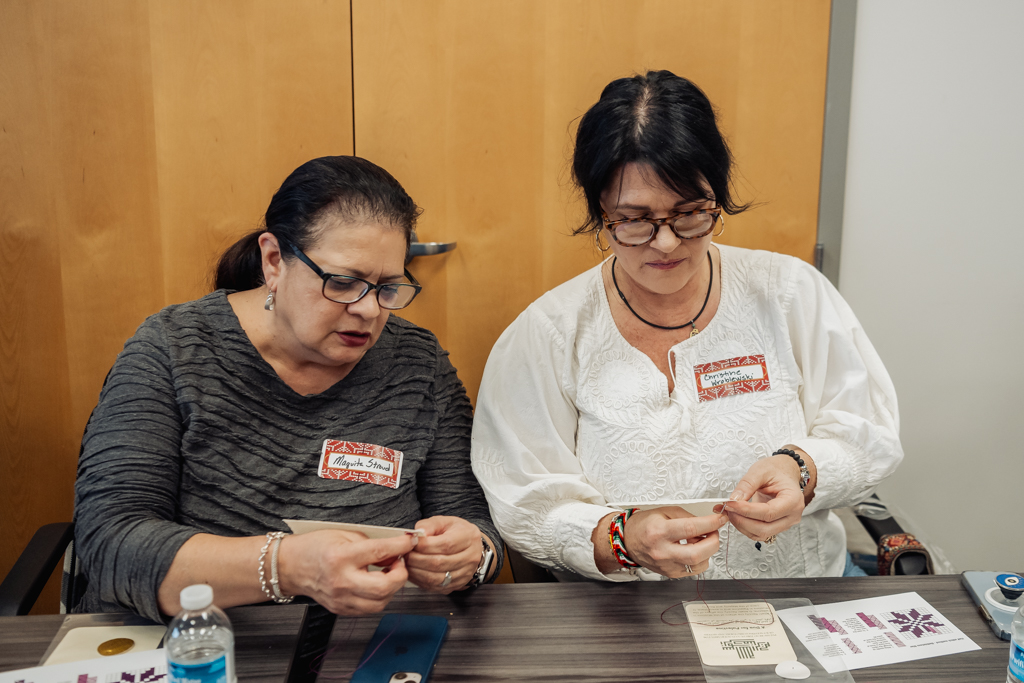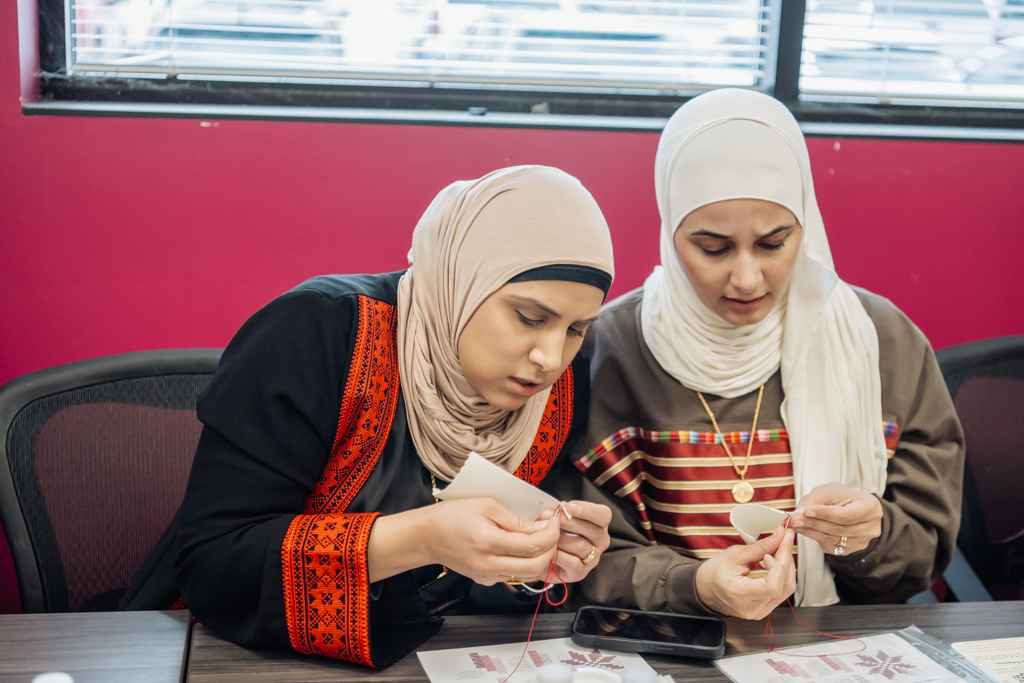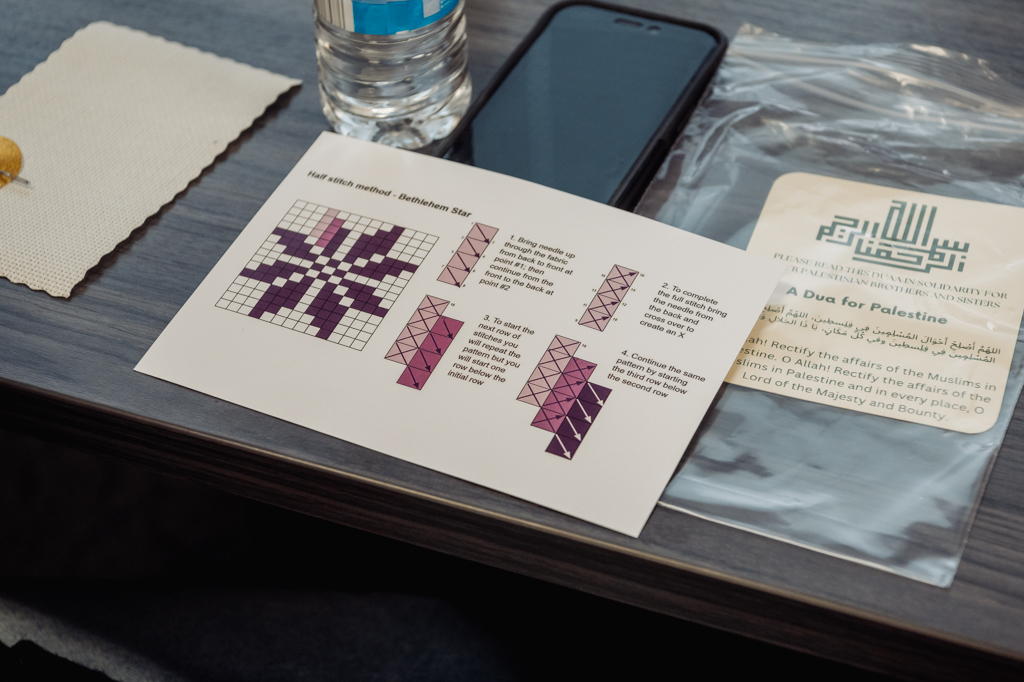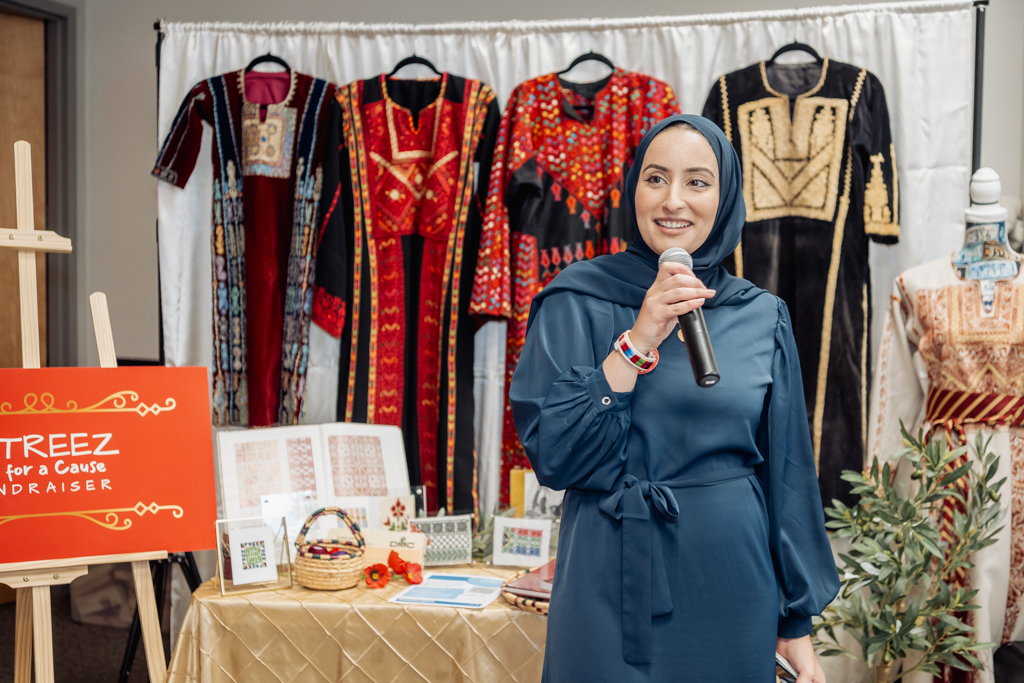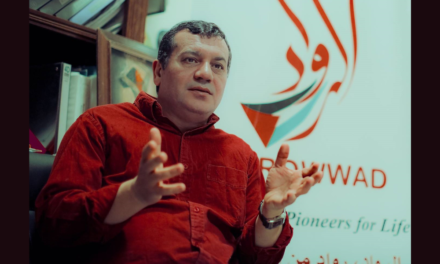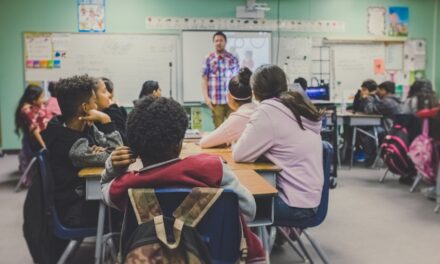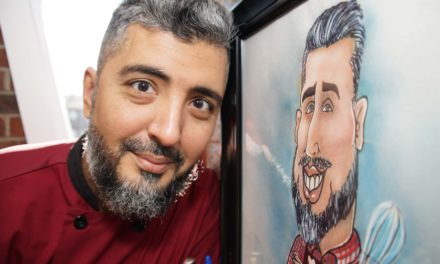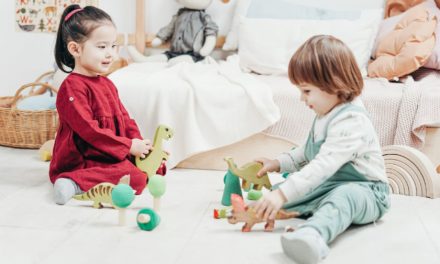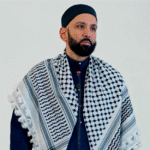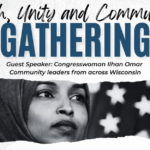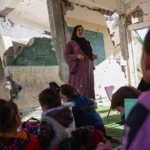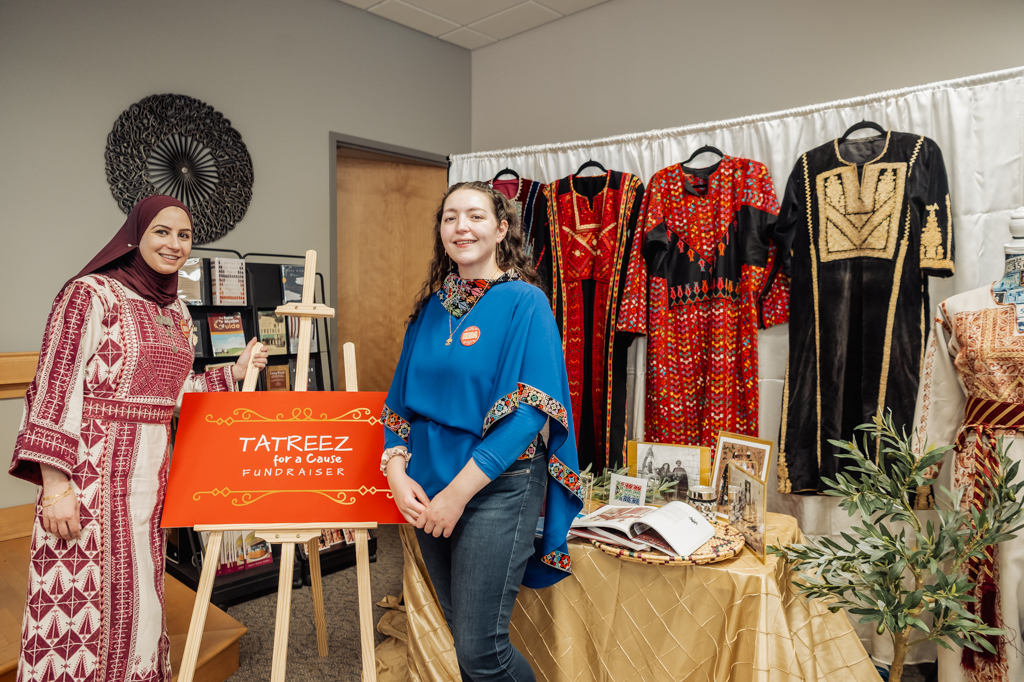
Photos by Mouna Photography
Honoring their Palestinian heritage, Huda Asad (left) and Heba Mohammad (right) organized a hands-on tatreez class to raise money and awareness for Palestine Children’s Relief Fund.
Cousins Huda Asad and Heba Mohammad of Greenfield picked up a new hobby in the past year—the Palestinian art of tatreez, Arabic for embroidery. The Israeli military’s horrific massacre of Palestinians in Gaza since Oct. 8, 2023, made each of them intuitively seek solace in the art of their heritage.
Each of the 30-something Palestinian women found lessons online and practiced alone at home until a few months ago when they discovered each other’s new-found passion for tatreez. Then they visited each other, bringing their experiments with needles and embroidery thread in hand.
“After we felt we had conquered the traditional cross stitch, we looked for classes where we could learn the other dozen stitches in tatreez,” Mohammad said. “There were no classes in Milwaukee we could find. The closest was really Chicago. Looking for those classes motivated us to do something ourselves.”
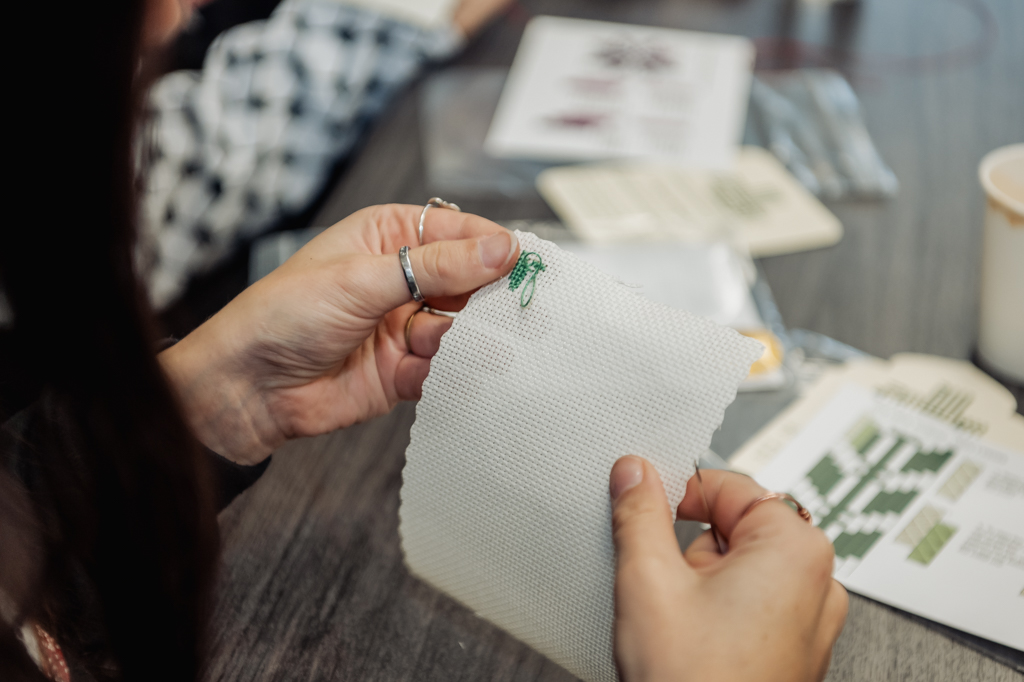
Asad and Mohammad imagined a tatreez workshop that would “humanize Palestinians” through their art and culture, Asad said in an interview with both women Sunday. “We also wanted to build a sense of community,” Mohammad added, bringing together Palestinian Americans and others interested in the Palestinian people.
They found a collaborator and sponsor in the Muslim Women’s Coalition, which provided a space in the Islamic Resource Center, 5235 S. 27th Street, Greenfield, and a cause, the Palestine Children’s Relief Fund, which opened a chapter in Greater Milwaukee in April. PCRF, founded in 1991 by concerned humanitarians in the United States, provides free medical care to thousands of injured and ill children who lack access to health care.
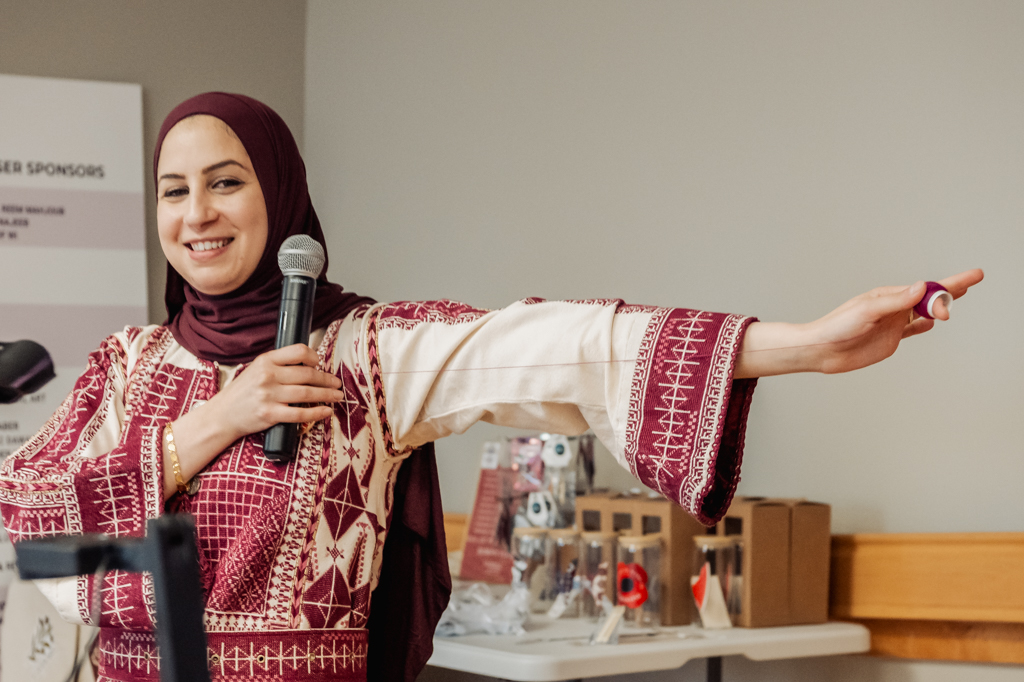
Event co-organizer Huda Asad recommended to participants to make their thread an arm’s length.
“We set a goal of raising $3,000 for PCRF,” Asad said.
They found additional event sponsors who helped minimize costs so proceeds could go to PCRF. They were: Melt n’ Dip, Al-Asalah Grocery and Bakery, Qahwah House, Roots Décor & Design and Modest Grace.
The IRC filled Sunday with about 80 participants for their “Tatreez for a Cause” workshop. The workshop, opened to girls 12 and up and women, included several mother-daughter pairs as well as many Arab Americans who decided to pick up a needle years after their mothers began teaching them tatreez, and some trying it for the first time as a way to connect to their roots. A few non-Arabs also came with friends to learn more about their culture.
In a text Monday to Wisconsin Muslim Journal, Asad said, “So far we have collected $4,600 for the PCRF (exceeding their goal by at least $1,600). More donations have been coming in today so I’m going to wait a few more days before I send it off officially to them 🙂 exciting isn’t it?”
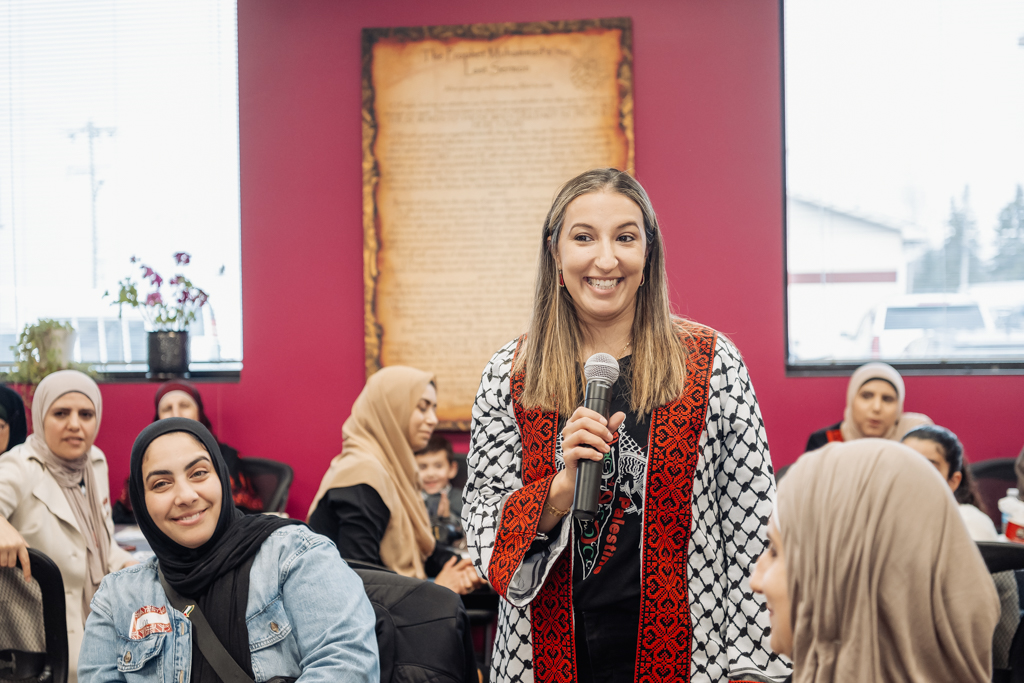
Finding peace post Oct. 7
Since a young age, Asad loved tatreez gowns. Over the years, she purchased a few.
“But actually doing it was not until after Oct. 7,” she said. “I was spiraling with everything going on overseas. I was always emotional. My mood was just blah. Tatreez helped recenter me,” she said. “I found it soothing. It gave me peace. I was busy doing this instead of watching the news all the time.”
Mohammad remembers her mother trying to teach her the art when she was about 10 years old, “not that I learned it,” she laughed. “Recently I was unemployed for a while and general embroidery was something I had started doing, so I had all these supplies on hand.

“When Oct. 7 happened, I was looking for a connection,” said Mohammad, who spends much of her time organizing and doing direct advocacy for Palestine, including leading Milwaukee for Palestine and volunteering for Wisconsin Vote Uninstructed. “I still felt something was missing. When I’d go home, sitting with my own thoughts, I asked myself, ‘Could I be doing something more productive?’
“I found it really made me feel better to focus on Palestinian embroidery,” Mohammad said. “It is a part of me.”
The seed of their project was planted one day, when Mohammad wore something with tatreez, “I was like, ‘Oh, I love that!’” said Asad. “And then she’s like, ‘Oh yeah, I made it myself.’ And I was like, ‘What!’ So I said, ‘Do you want to come over and help me?’”

They started practicing together, then Asad and Mohammad began going to a class in Chicago. “That’s where the idea for creating a workshop came,” Mohammad said. “We’ve enjoyed doing it together and want to create that experience for others in Milwaukee.”
“Then I found out we have PCRF in Milwaukee,” Asad said. “I love PCRF and what they stand for. I love what they do all over the world.” The idea for making their workshop a fundraiser was born.
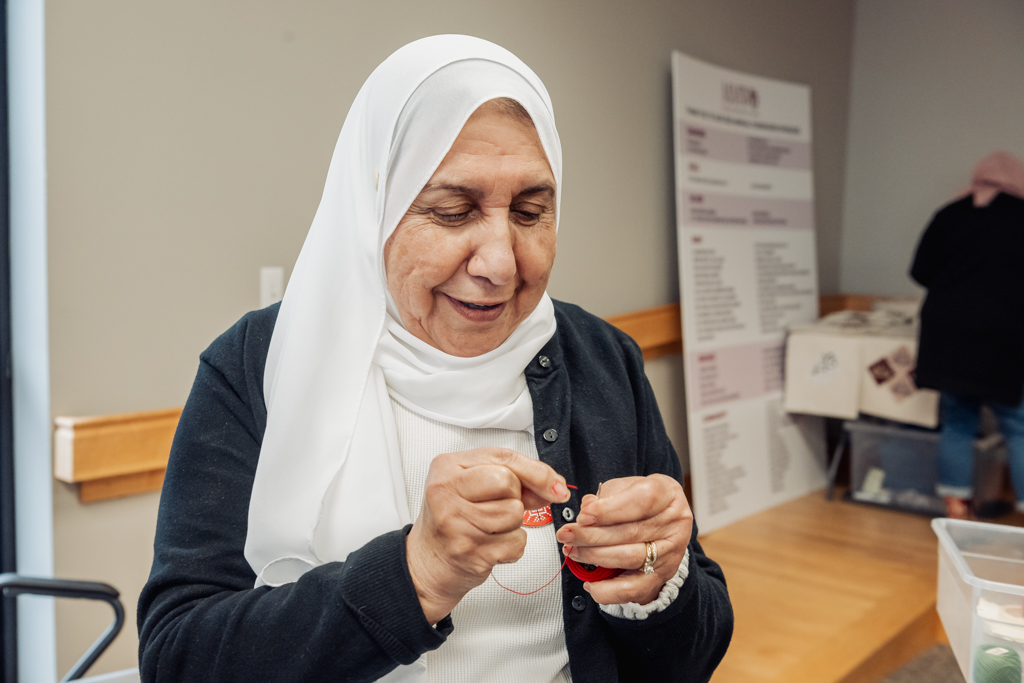
“We reached out to people we knew in Milwaukee and they have all been so supportive,” Asad said. “Janan said, ‘The center is yours.’”
The experience of creating a workshop brought people together, she added. “There has always been an awareness of the Muslim and Palestinian communities but now we know each other on a more personal level.”

Enthusiastic participants dive in
About 80 participants in the tatreez workshop packed in Sunday, sitting shoulder to shoulder at long conference tables.
Asad and Mohammad made presentations on tatreez and its importance in Palestinian culture. Bara Omari, a PCRF board member, presented a video on the organization’s work, particularly in the current crisis in Gaza.
Then each participant opened a small plastic bag with a small cross-stitch canvas, a needle and instructions for making two tatreez designs: the Bethlehem Star and Olive Leaves, both Palestinian symbols. The kit also included a card designed with “A Dua (prayer) for Palestine,” donated by Roots Décor & Design. Mohammad offered some instructions while volunteer tatreez teachers circulated to assist participants.

Soreena Khader instructs her daughter who is learning tetreez for the first time. Khader said she is grateful for opportunities for her to experience Palestinian art and culture.
Several mother-daughter teams worked together, including Soreena Khader of Franklin, owner of Roots Décor & Design, and her 11-year-old daughter.
“I am Palestinian American,” Khader explained. “My parents came here in the late 1960s. I was lucky enough to be able to go back in the early 1990s and live in Palestine for a couple of years and immerse myself in the culture. Unfortunately, my daughter’s not able to go back to Palestine. When I was growing up, we could go back and forth. I was lucky to have the Palestinian culture around me.
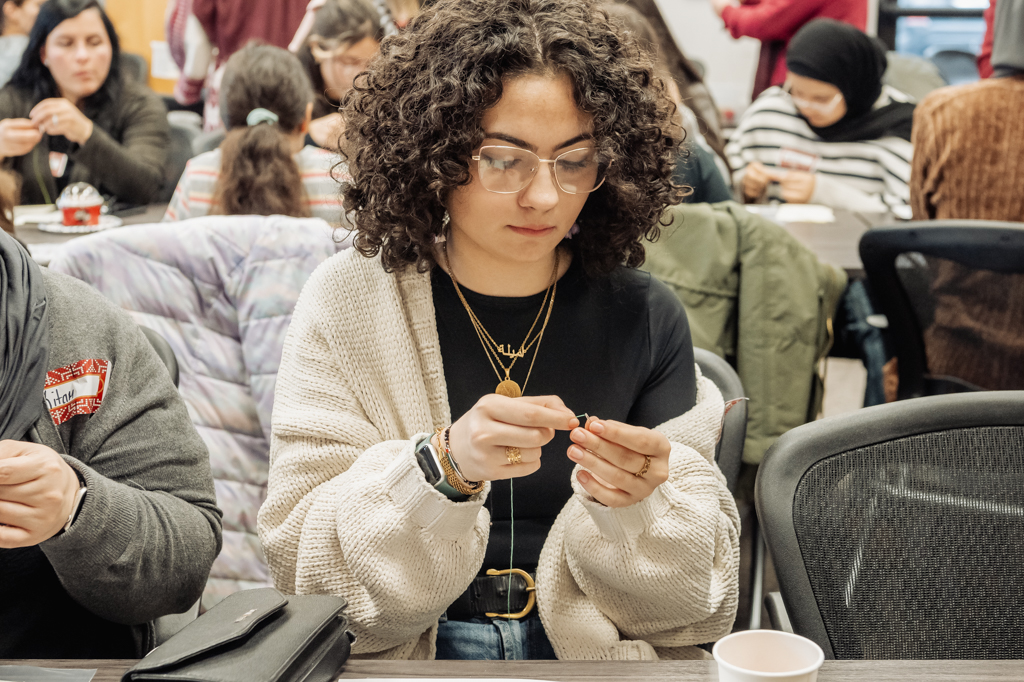
“Nowadays, it is really difficult. Doing things like this workshop allows me to bring Palestinian culture to my daughter, for her to see things that would otherwise be impossible for her to see firsthand.
“I absolutely love the Milwaukee community exactly for that fact because she is able to see other people within her culture and feel like she has a community and feel that she isn’t alone and her own culture,” said Khader, who moved to Wisconsin 12 years ago. “I grew up in South Florida where unfortunately I didn’t have other Arab friends or Muslim friends at school. My culture kind of stayed at home and didn’t really go to school with me. Since we’re here, I feel like my daughter sees that she’s not alone, that she’s not different. It’s really empowering and she has such a great confidence because of how this community is.”
Gabi Taleb of Oak Creek wants to teach tetreez to her two daughters who are 6 and 13 years old. “Our tradition has been around for a very long time. If we don’t show it to our children, if we don’t tell them about it, it will be forgotten. It’s nice to keep it by teaching our children.”

Annette Desrosie of Stevens Point came to Greenfield for the workshop with her friend Mimi Barakat of Milwaukee. “I want to show my support to Mimi’s community, learn about Palestinian culture and art, and see a good friend,” she said, explaining why she decided to attend the workshop.
Barakat’s daughter Amana, 17, is working on a high school AP project about Palestine, Barakat explained. “She’s really into the art,” she said. “I’m interested in preserving our culture and passing it on to my daughter.”
With the workshop well underway and some finished with the needlework, participants visited tables where vendors Roots Décor & Designs and Modest Grace displaced souvenir items for purchase. Since sponsors donated the items, all proceeds from sales went directly to PCRF, Asad noted.


